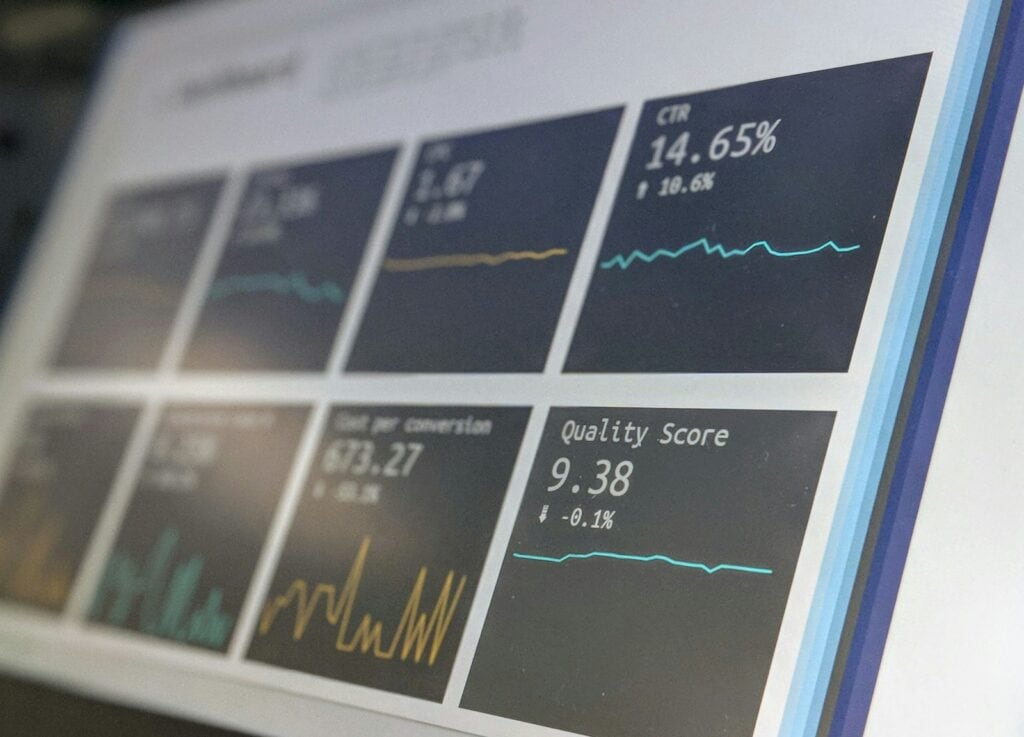Rich in history and natural beauty, Virginia is a popular state for a wide range of real estate investment opportunities.
Virginia is consistently ranking just below the top 10 states with the highest median home price, recently clocking in at a whopping $421,100.
To tap into this lucrative market, investors are using debt service coverage ratio (DSCR) loans, which focus on the property’s rental income rather than the investor’s income.
Let’s take a look at how DSCR loans in Virginia are making the lending process much faster and simpler for borrowers than traditional mortgages.
Why get DSCR loans in Virginia?
Virginia is a year-round tourist attraction for its beaches, mountains, and cities saturated in culture and history, but it’s also a beautiful place to call home for those seeking a higher quality of life.
Virginia investors are using DSCR loans to tap into all areas of the state. This loan type is considered a non-qualified mortgage (non-QM), which means DSCR lenders don’t have to follow traditional, strict lending standards.
Instead of verifying the investor’s income with W2s and tax returns, lenders will compare the property’s income and monthly payment amount to determine whether a borrower qualifies.
How do DSCR loans in Virginia work?
To qualify for a DSCR loan, the chosen property’s income needs to exceed the monthly payment. As a result, the lending process is much simpler for investors because it doesn’t require personal income verification.
Borrowers such as real estate investors often have complex tax returns that don’t accurately show their true income. This makes it difficult to qualify for a traditional mortgage due to the requirements.
A DSCR loan gives these alternative borrowers a proper lending solution.
See if you’re eligible for a DSCR loan.How is DSCR calculated?
DSCR is calculated with the following formula:
The result is expressed in a decimal format. Ideally, the property’s DSCR will equal at least 1.25 or 1.25x. This means the property’s income is 25% greater than the full monthly payment.
For example, if a property’s rental income is $2,000, and the monthly payment is $1,500, the DSCR equals 1.3x.
As you explore your property options in Virginia, you can manipulate the rental income and monthly payment amounts to attain your ideal DSCR.
Determining DSCR income
The income for residential property is simply the monthly rental income.
For commercial properties, you would use the net operating income (NOI), which is the income minus expenses such as maintenance, utilities, and other operating costs.
A DSCR lender can help you determine the income amount for your desired property.
Determining DSCR payment
The DSCR payment amount includes the principal, interest, taxes, insurance, HOA, and other fees. These costs and fees are usually abbreviated as PITIA.
Example: How higher rent can improve DSCR
| Income | Payment | DSCR |
| $2,800 | $2,500 | 1.12 |
| $3,200 | $2,500 | 1.28 |
Example: How lower payment can improve DSCR
| Income | Payment | DSCR |
| $2,500 | $2,300 | 1.1 |
| $2,500 | $2,000 | 1.25 |
Tip: With any property you’re considering, play with the numbers to see how you can increase the income or reduce the payment. A higher DSCR will help you get approved.
→Related: DSCR Loan Pros and Cons
What is the minimum DSCR to qualify in Virginia?
Most DSCR lenders want to see a DSCR of at least 1.25x, but the higher the better.
Some Virginia lenders will accept a DSCR as low as 1.0 or don’t have a minimum. But remember, a DSCR below 1.0 means the property has negative cash flow.
How to qualify for DSCR loans in Virginia
It’s not difficult for investors to qualify for a DSCR loan in Virginia if they find the right property.
DSCR loans were designed with an investor’s unique situation in mind. Investors typically have a difficult time getting approved with traditional loans because they can’t provide inside-the-box income verification. They often don’t have W2 jobs, after all.
A DSCR loan provides investors with the chance to get approved based on the property’s income — not proof of personal income.
Each lender will have slightly different DSCR loan requirements, but here is a guide to the general requirements you can expect from most.
Loan-to-value (LTV): Most lenders in Virginia allow a maximum LTV of 75-80%, which means you’ll make a DSCR down payment of at least 20-25%.
Credit score: A credit score of at least 640 or higher is ideal for DSCR loans, but some lenders may want to see a higher score.
Verifying the property’s future rental income: To verify the potential income amount, an appraiser will need to complete Form 1007, the Single-Family Comparable Rent Schedule.
Loan purpose: DSCR loans generally can only be used to purchase a property, refinance, or take cash out.
Property types allowed: Property type allowances vary by lender but usually include single-family, 2-4 unit properties, townhomes, condos, and more. Some lenders also allow commercial properties such as office buildings and 5+ unit apartments.
Property use: Long-term and short-term rentals are allowed.
Loan type: While the most common type is a 30-year fixed-rate, DSCR lenders in Virginia also usually offer adjustable-rate and interest-only loans.
Income and employment, debt-to-income (DTI) ratio: DSCR lenders use the property’s income, so they don’t require income and employment verification or DTI ratios.
Maximum loan amount: Loan amounts up to $5 million are common, but some lenders in Virginia may offer more or less.
Maximum properties owned: There usually is no limit to the number of properties a borrower can own.
Prepayment penalties: You may face prepayment penalties if you pay off your loan, sell the property, or refinance too soon. Consult with your DSCR lender for specifics.
Cash reserves: You should have at least 6 months of your full PITIA amount, or 12 months if your DSCR is below 1.0.
Closing in the name of an LLC: DSCR lenders in Virginia allow borrowers to close in the name of an LLC.
Seller-paid closing costs: Most lenders allow seller-paid closing costs up to a certain amount.
See if your deal meets DSCR requirements.Rates for DSCR loans in Virginia
DSCR loan rates in Virginia are comparable to traditional mortgage rates, considering a DSCR loan is an alternative lending source.
Rates for DSCR loans may be around 1-2% higher than traditional rates.
The five best areas to invest in Virginia
Virginia is packed with expensive property (and lower taxes), which comes with advantages and challenges. A high property price could make cash flow harder. That’s why it’s important to find the right deal in the right location..
Check out the five best areas to invest in Virginia for vacation properties, single-family properties, condos, and more.
1. Virginia Beach
Virginia Beach tops many lists around the web because it’s an obvious first choice. As the name suggests, Virginia Beach is a coastal city filled with natural beauty, entertainment, and good eats—all year long.
2. Charlottesville
While Virginia Beach is set up along the ocean, Charlottesville is set along the Blue Ridge Mountains. This creates a unique combination of a cozy downtown with lots of art, history, food, and shopping, mixed with tons of recreational activities in the mountains like hiking and kayaking.
3. Cape Charles
Cape Charles only has around 1,000 full-time residents, meaning it’s made for tourism. Setting up vacation rentals in Cape Charles is a smart move for the right Virginia investor.
4. Harrisonburg
Harrisonburg is filled with adventure, so it’s the perfect vacation destination for outdoor lovers.
The serene, beautiful town outside of the Blue Ridge Mountains is also a great match for retirees or young couples looking for a fresh start.
5. Staunton
Virginia’s own website promotes Staunton as the destination for bed-and-breakfasts since its rich history and beautiful architecture are meant to be explored on foot.
Five tips for real estate investors in Virginia
Let’s look at our best advice for investing in Virginia property.
1. Build a solid local team
Nobody knows the ins and outs of a town better than the local experts. Consult with local realtors, property managers, and lawyers so you get a solid understanding of the market and local laws.
2. Consider vacation rentals
You can build a range of investments in Virginia because the markets exist for all of them. However, because of Virginia’s beauty and history, there’s a seemingly unending list of things to do and see year-round.
Investors will find great success with vacation rentals in Virginia, particularly in the areas from the list above.
3. Know what’s involved in being a landlord
If you’re a newer investor, it might be tempting to self-manage. However, it may be more efficient—and save you both time and money—if you hire a local management company to do the work.
4. Make sure your investments match your goals and experience
Whether you’re new to investing or already have several properties scattered around the country, it’s never too early to evaluate whether your current portfolio matches your long-term goals. Does Virginia fit into those goals?
5. Does your chosen city have a diverse range of industries?
If you’re eyeing a particularly populated city in Virginia with obvious natural beauty, it’s tough to imagine people ever leaving the area.
But take some time to note the industries thriving in the city. Is there a range of job opportunities across industries? This will ensure your investment has a long and healthy life.
FAQ
Find an investment property that has a DSCR of at least 1.25x, which means the property brings in 25% more income than the payment.
Most DSCR lenders require that you put down at least 20-25%.
DSCR loans are commonly structured as 30-year fixed-rate loans, but also may be structured with adjustable rates.
DSCR loans are safe because your lender will verify whether your property will make enough money compared to your monthly payments. In general, the higher your DSCR, the safer your investment.
Submit your DSCR loan scenario to get started
If you’re looking for an investment property in Virginia, a DSCR loan can provide the speed and flexibility you need to quickly secure a property and expand your portfolio.
Submit your DSCR loan scenario.



